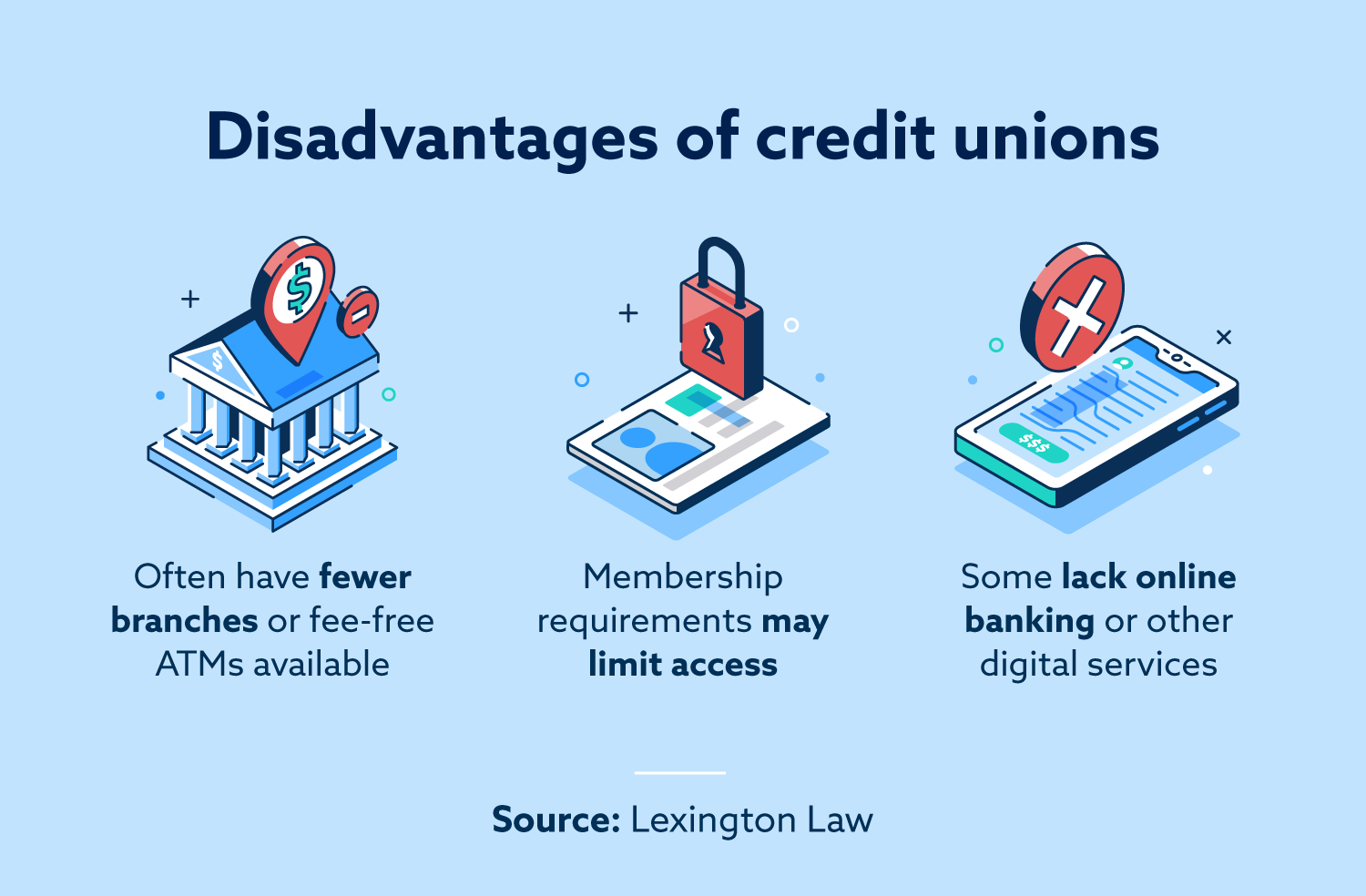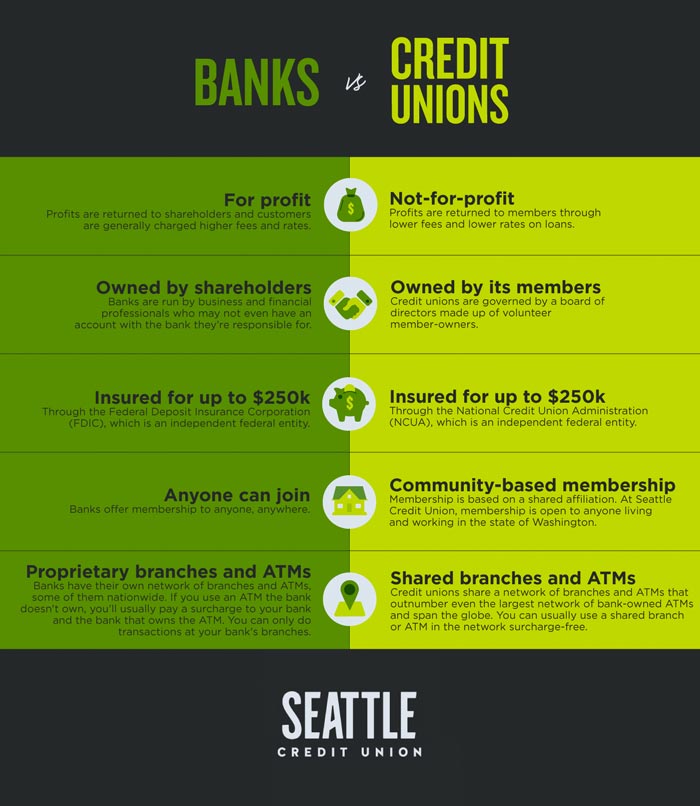The Ultimate Overview to Recognizing Cooperative Credit Union

Credit unions stand as distinct financial entities, rooted in principles of shared support and member-driven operations. As we navigate through the intricacies of credit report unions, an insightful journey awaits to drop light on these member-focused establishments and how they differ from typical banks.
What Are Lending Institution?
Cooperative credit union are member-owned financial establishments that use a variety of financial solutions to their members. Unlike conventional banks, debt unions operate as not-for-profit organizations, meaning their primary focus gets on offering their members instead of maximizing earnings. Members of a credit rating union normally share a typical bond, such as benefiting the same employer, belonging to the very same community, or being part of the exact same organization.
Among the essential benefits of lending institution is that they usually supply higher rate of interest on savings accounts and lower rate of interest on finances contrasted to financial institutions. Federal Credit Union. This is since lending institution are structured to benefit their members straight, allowing them to hand down their earnings in the form of better prices and fewer charges. Furthermore, credit scores unions are known for their customized customer care, as they focus on building connections with their members to understand their one-of-a-kind monetary demands and objectives
History and Evolution of Debt Unions
The roots of member-owned economic cooperatives, understood today as cooperative credit union, trace back to a time when communities looked for alternatives to standard banking organizations. The concept of lending institution come from the 19th century in Europe, with Friedrich Wilhelm Raiffeisen usually attributed as the pioneer of the cooperative banking movement. Raiffeisen established the initial identified debt union in Germany in the mid-1800s, emphasizing community assistance and self-help principles.
The evolution of cooperative credit union continued in North America, where Alphonse Desjardins developed the first lending institution in Canada in 1900. Quickly after, in 1909, the very first U.S. lending institution was developed in New Hampshire by a team of Franco-American immigrants. These very early credit scores unions operated the basic principles of shared help, democratic control, and participant possession.
In time, lending institution have actually grown in popularity worldwide as a result of their not-for-profit structure, concentrate on offering members, and using affordable monetary product or services. Today, credit unions play an important function in the economic industry, providing obtainable and community-oriented banking alternatives for individuals and organizations alike.

Membership and Qualification Standards
Membership at a debt union is generally limited to people meeting particular qualification criteria based on the institution's starting principles and regulative requirements. Some credit score unions browse around this site may just serve individuals who live or work in a specific location, while others might be customized to workers of a particular firm or participants of a certain association.
Additionally, cooperative credit union are structured as not-for-profit organizations, indicating that their main goal is to serve their members instead of create earnings for investors. This concentrate on participant service usually translates right into even more personalized attention, lower charges, and competitive rate of interest on savings and lendings accounts. By satisfying the qualification standards and ending up being a participant of a credit history union, people can access a series of economic services and products customized to their particular requirements.
Providers and Products Used
One of the vital elements that sets lending institution apart is the diverse variety of economic solutions and items they supply to their members. Lending institution usually supply traditional banking solutions such as savings and checking accounts, fundings, and charge card. Participants can also profit from investment solutions, including pension and monetary planning aid. Lots of cooperative credit union offer competitive rate of interest prices on interest-bearing accounts and finances, in addition to reduced costs contrasted to traditional banks.
Moreover, cooperative credit union usually give convenient online and mobile financial alternatives for participants to conveniently handle their funds. They might provide benefits such as common branching, enabling members to access their accounts at other credit unions across the country. Some lending institution also offer insurance products like life, home, and car insurance policy to aid members shield their properties and liked ones.

Advantages of Financial With Lending Institution
When considering monetary institutions, exploring the advantages of financial with cooperative credit union reveals special advantages for members seeking tailored solution and competitive prices. One considerable benefit of credit rating unions is their concentrate on individualized customer care. Unlike big banks, lending institution are member-owned and prioritize structure strong connections with their participants. This suggests that credit scores union personnel frequently have a deeper understanding of their participants' financial demands and can offer customized remedies to aid them achieve their objectives. Furthermore, cooperative credit union are understood for using affordable rates of interest on cost savings and loans accounts. Since they are not-for-profit companies, debt unions can frequently provide lower funding prices, greater savings prices, and reduced fees contrasted to typical financial institutions. This can lead to considerable price savings for participants over have a peek at this site time. Overall, financial with a lending institution can give a much more tailored, affordable, and member-centric financial experience.
Final Thought
In final thought, credit unions stand out as member-owned monetary institutions that focus on serving their members over maximizing profits. With origins dating back to 19th century Europe, credit rating unions adhere to principles of mutual aid and participant possession.
Credit report unions are member-owned financial organizations that offer a range of financial services to their participants. The concept of credit score unions stem in the 19th century in Europe, with Friedrich Wilhelm Raiffeisen frequently attributed as the leader of the cooperative banking motion.The advancement of credit score unions proceeded in North America, where Alphonse Desjardins established the initial credit history union in Canada in 1900. Credit rating unions generally this post give typical banking solutions such as savings and inspecting accounts, financings, and credit score cards.When taking into consideration economic establishments, discovering the benefits of banking with credit score unions reveals unique advantages for members seeking personalized service and affordable rates.
Comments on “Join a Credit Union in Wyoming: Personalized Financial Solutions for You”